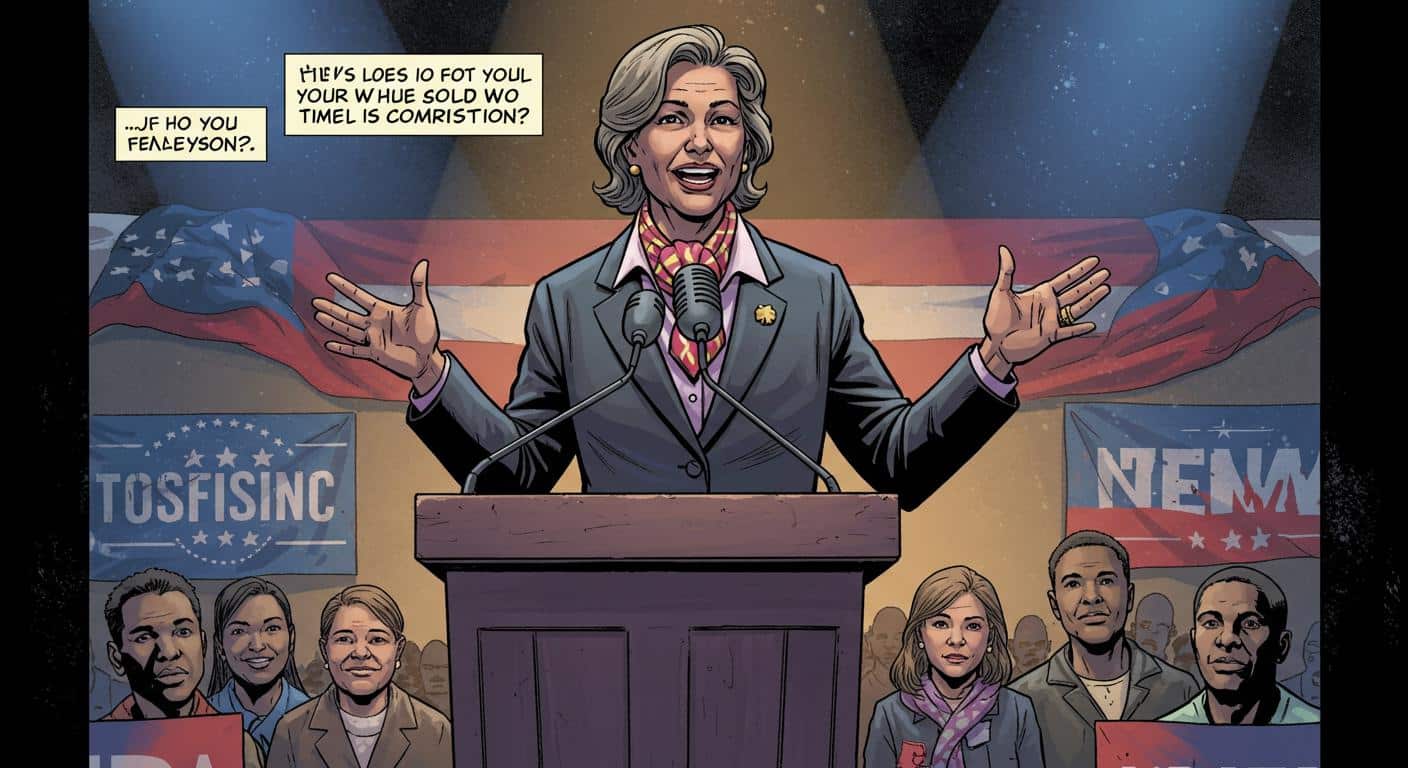There are few events that crystallize the crossroads of politics and peculiarity quite like a candidate offering up their own “oppo-research” before anyone else asks. Yvonne Rorrer, the Democrat running in Virginia’s 47th District, has gone further than most: over the weekend, she publicly declared on social media that she and her husband are “ethically non-monogamous”—a move she describes as both preemptive and radically honest. The Independent reports that Rorrer wanted to get ahead of the rumor mill, claiming, “people love to dig up the unexpected and spin it into a spectacle.” In her words, “If someone is going to talk about my life, it’s going to be me.”
Full-Disclosure as Campaign Strategy
Few candidates volunteer details about their private relationships in the opening salvos of an election, much less frame them as a point of radical transparency. Rorrer’s statement, detailed in The Independent’s review of her announcement, refers to a 22-year marriage in which she and her husband—who, in a twist, is described as a moderate Republican—“consensually [date] other couples together” and participate in a community of “like-minded people.” The campaign bio adds that their divergent political perspectives make for “a fun discussion around the dinner table,” and underscores that their household, which includes four children, is both balanced and deeply committed.
It’s difficult not to notice how deliberate Rorrer is in controlling the narrative. Her declaration, “I refuse to live in the shadows waiting for information to be leaked,” isn’t just a nod to the inevitability of modern political muckraking—it’s a firm grip on the shovel. This stance was reiterated when Rorrer told critics, “It’s information that would have come out. I just got ahead of it. Don’t be mad,” as stated in details highlighted by The Independent.
Public Curiosity vs. “TMI” Fatigue
Reactions, unsurprisingly, have spanned the usual internet spectrum. According to The Independent, social media users veered between accusations of “TMI” and a more laissez-faire attitude, with some insisting they “don’t give a rat’s a**” so long as everything is consensual and among adults. It’s a familiar scene—Americans alternately demand openness from public figures, only to recoil when the curtain is thrown back with a bit too much gusto.
Interestingly, the local press has given this story a measured amount of attention. The Eastern Progress includes Rorrer’s revelation among the week’s notable headlines, placing it alongside more traditional fare such as city council disputes and school policy debates. The outlet’s matter-of-fact inclusion might speak volumes about how much (or little) shock-value this kind of announcement actually holds in today’s endlessly scrollable news cycle.
Local Color, National Curiosity
Politics is, perhaps more than ever, local business. Rorrer lives in Stuart, Virginia, part of Patrick County—a county the Independent notes went nearly 80% for Trump in 2024, even as the state broke narrowly for Kamala Harris. One wonders how ethical non-monogamy plays in a deeply conservative region, especially against the backdrop of national polarization and “culture war” flare-ups. Is this the kind of radical candor that will endear a candidate to independent-minded voters, or will it reinforce divides?
Beyond her personal life, Rorrer brings a resume focused on social advocacy: the Independent outlines her work as a court-appointed special advocate for abused and neglected children, as well as her experience providing remembrance photography for grieving families and founding a nonprofit for the homeless. Earlier in the report, it’s mentioned that she previously led a legislative effort addressing easement relocation—a rather more procedural aspect of Virginia lawmaking that, for better or worse, is now overshadowed by the candidacy’s more headline-grabbing admissions.
Disclosure, Deflection, or Amplification?
The real question may not be about Rorrer’s lifestyle at all, but about the new playbook her campaign represents. When a politician puts their so-called “scandal” front and center, does it become less scandalous? Or in the age of viral news and ever-shortening attention spans, does drawing attention to a taboo—however consensual or benign—still amplify it, despite intentions?
As the Independent documents, Rorrer frames her announcement not as an apology but as a challenge to shame and secrecy: “I don’t do shame, and I sure won’t let anyone else tell my story.” In a media landscape that cycles rapidly from curiosity to fatigue, perhaps the most surprising outcome is not that a candidate is ethically non-monogamous, but that so many seem unsure how much they care.
Are voters ready for a candidate whose platform is as defined by candor as by policy—or will the story simply fade into the ongoing weirdness of American political life? After all, as is often the case, perhaps the most remarkable thing is not the revelation itself, but the world in which it seems almost routine.







